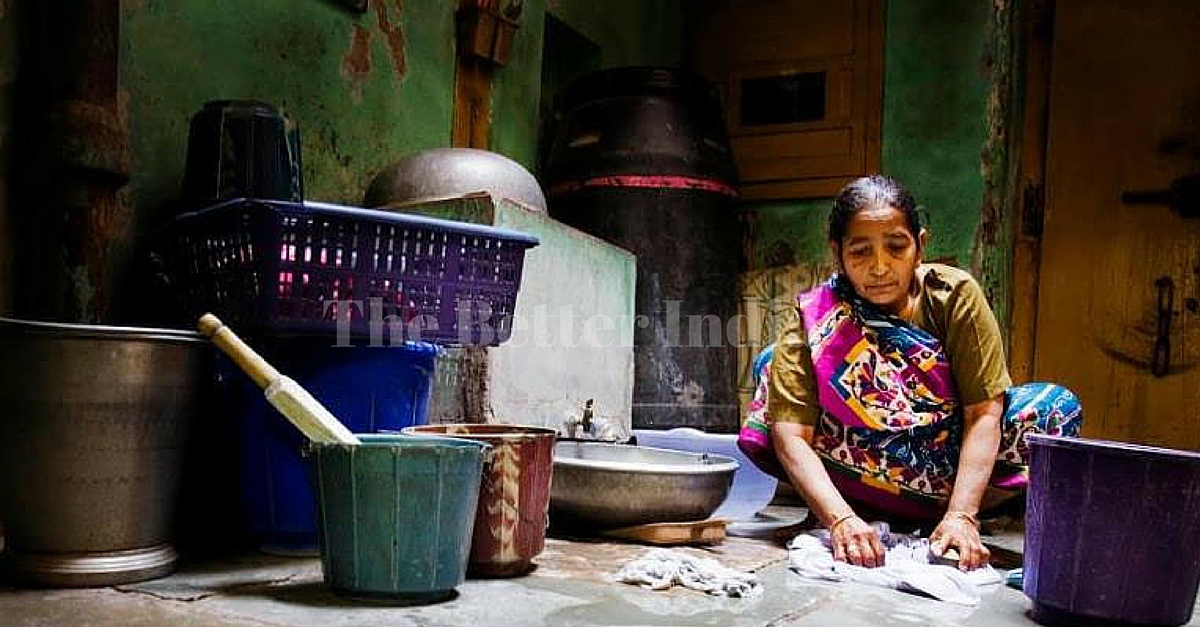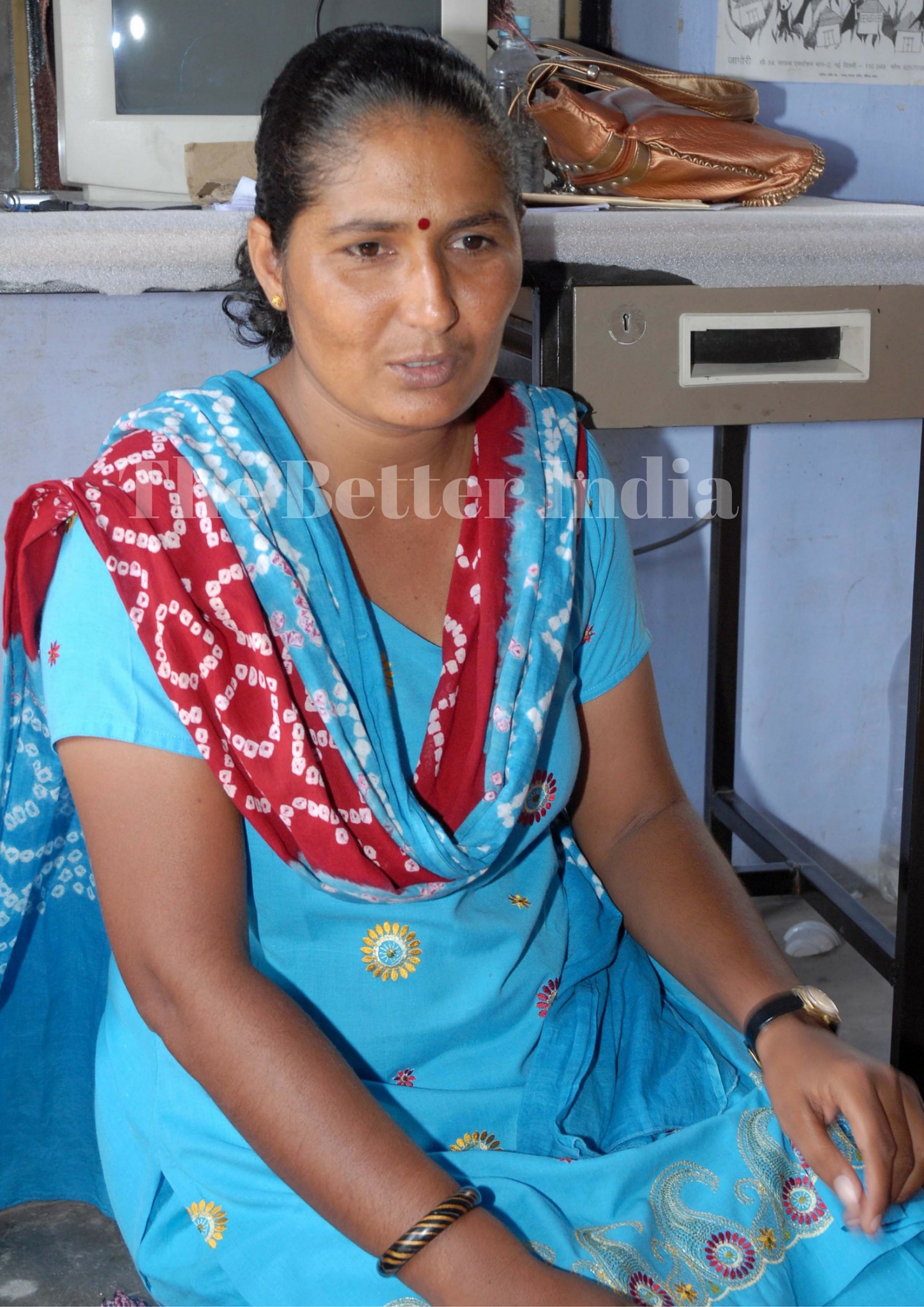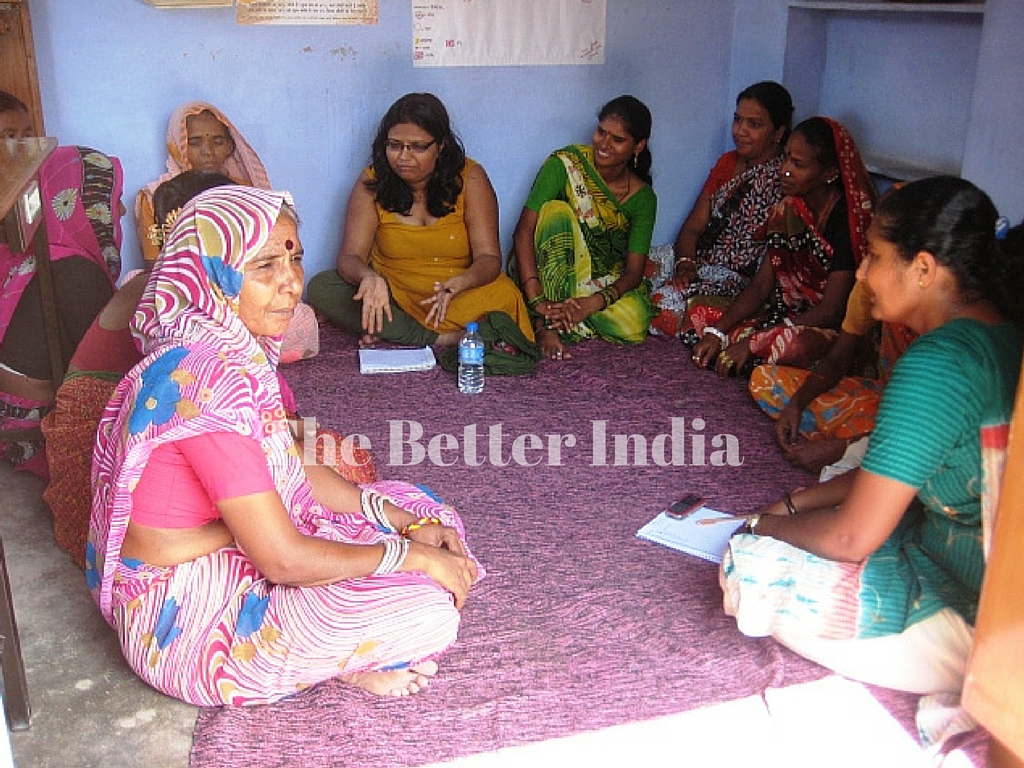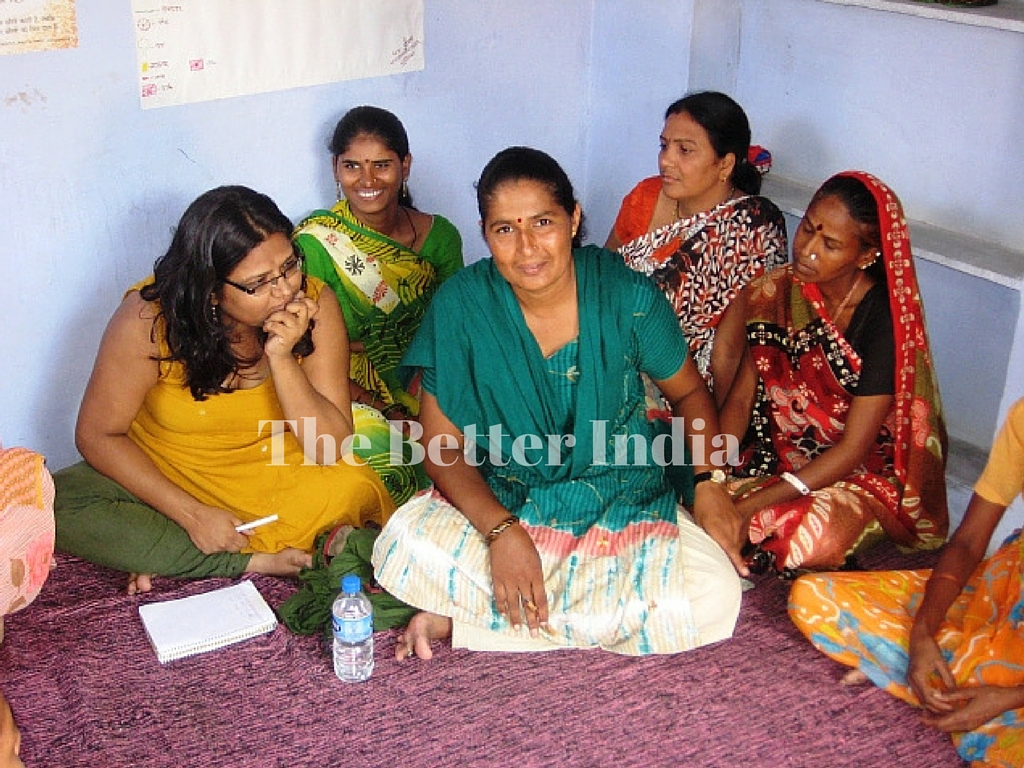The Life of Domestic Workers in India. And The Ray of Hope.
Physical and sexual abuse was a common occurrence in the lives of domestic workers in Rajasthan till one organization came along and gave them the confidence and knowledge to speak against the injustice and fight for their rights.

Physical and sexual abuse was a common occurrence in the lives of domestic workers in Rajasthan. Till one organization came along and gave them the confidence and knowledge to speak against the injustice and fight for their rights.
Deprivation has been an integral part of Savita’s life from the very beginning. Whereas most children could eat what they wanted, buy the clothes they liked and go to school, these were ‘luxuries’ that her family of five simply could not afford.
Her parents had shifted base from a small hamlet in Cooch Behar district of West Bengal to Jaipur in Rajasthan, in search of employment and the only way for the little one to ensure she got two square meals a day was by contributing to the family earnings.
Savita was only 13 when she first started doing domestic work along with her mother. There were times when she was on the job for nearly 10 hours a day but she did it without complaining in the hope that, sooner or later, things would get better. That has not happened till date.
“Being a servant can really be very humiliating. I remember when I was small I was forbidden to sit on a chair in my employer’s home or even eat in the plates that they used regularly. And using their toilet was forbidden even if it was an emergency. Ill-treatment was ‘normal’ and for every little mistake I was beaten up. Those days, I used to fervently dream of leaving this work and going to school and playing like others my age,” shares Savita, who has turned 29.
Sixteen years on and things don’t seem to have changed much for her, other than the fact that she is now married.

She still works as a domestic help in seven homes, and despite labouring away for 12 hours every day earns a meagre Rs 3,500 per month. Mistreatment at the hands of employers continues to be a part of her work environment and her standard of living has not improved much.
Yet, today there is something that has given Savita the confidence to not just stand up for her rights as an individual and a worker but also make sure that unlike her, her daughter gets to go to school and break out of the circle of destitution and disempowerment.
Being part of a small group of domestic workers in her area has made quite a difference to Savita’s attitude. She now recognises herself as a ‘domestic worker’- a member of the country’s large unorganized labour force. Her awareness levels have increased tremendously, and she now knows how to access government welfare schemes. In case she gets to know of some fellow domestic worker being treated badly she is ready to speak up on her behalf.
Like Savita, there are over 12,000 women domestic workers in the Pink City who have come together as part of the Rajasthan Mahila Kamgaar Union (RMKU) to claim their rights and establish their identity as workers.

The brainchild of Jaipur-based social activist Mewa Bharti, this group has indeed become a force to reckon with.
“Women domestic workers in India are highly overworked and underpaid. Moreover, they are often subjected to sexual and physical violence because their workplace constitutes private homes and as such there are no laws or policies to protect their interests,” states Bharti.
It was an incident involving a 15-year-old domestic worker in Jaipur that compelled Bharti to dedicate her time and energies to catalysing change in the lives of these hardworking women.
“After the teenager was raped by her employer she became pregnant. When she approached them for help she was publicly disgraced. I came to know of this case from another domestic helper. Even as I ensured that she had a safe delivery I got down to the tough task of fighting for justice for her. The police especially did not cooperate initially and only after I sought the support of women’s groups in the city did they register a case. It took three long years but we were able to force the culprit to pay for the education and upkeep of the child. As I worked on this case I realised that I wanted to do more to safeguard the position of these women,” she elaborates.
Bharti knew that the key to empowering them would be to bring them on a common platform where they could share their experiences and brainstorm for solutions to their problems.
She explains, “There is definite strength in numbers so I decided to take steps to enable them to build a strong network. With capacity building support from Jagori, the Delhi-based women resource centre that has been working on issues of migrant women and informal women workers over the past several years, we have managed to realise the power of collective action even though the journey was not all that easy.”
Five years of continuous engagement and the RMKU was set up in 2012 with 500-odd women on board, a number that has grown to 12,000.
“The organisation functions in a simple manner: there are several small ‘mohallah’ (neighbourhood) groups across Jaipur and each one has a representative who goes from door-to-door motivating more women to join and participate in the monthly meetings. This group essentially serves as the domestic worker’s support system, a place where they can talk freely.”
Apart from problem solving, the forum actively spreads awareness regarding various social schemes and how to go about doing the paperwork for key government documents like a ration card or Above/Below Poverty Line (APL/BPL) cards, which are crucial to the survival of this largely migrant domestic workforce.

Tackling employer and police harassment, too, is spoken about in great detail.
Bali, who works in Jaipur’s Devinagar area, sheds some light on the deplorable conditions in which these women survive, “When we come from another state we have no local identity proof or ration card. That in itself stops us from accessing subsidised food grains, opening a bank account or getting our children into a nearby school. The slums where we manage to hire a small, airless room are extremely dirty and most of us don’t even have access to toilets. But no government paid any attention to our needs till we built our own collective. Suddenly, we had an identity.”
Truly, Bali and others instantly felt the difference when they connected with their ‘mohallah’ group and then the Union.
“I understood that my employer cannot hit me. So the next time she tried to raise her hand, I told her that I would go to the police. She was appalled at my outspoken behaviour and I eventually lost that job but I am happy that I spoke up for myself. Nowadays, whenever someone abuses one of us we stand together. Consequently, the employers have started treating us better,” says Geeta, who works in Jaipur’s Randev Nagar.
According to Bharti, “Domestic workers are vulnerable because they fear losing out on much-needed paid work. This compels them to agree to unreasonable terms – like poor pay and no leave – and sometimes even suffer through sexual and physical abuse silently. Is that the way to treat workers, formal or informal?”
Of course, for the roughly 800,000 domestic workers in India (ILO estimates) there is finally some reason to hope – the Government of India has prepared a national policy that promises to protect their particular interests.
The draft ‘National Policy for Domestic Workers’, prepared by the Director General Labour Welfare, in compliance with the provisions of the ILO convention on domestic workers, recommends minimum monthly wage for unskilled, semi-skilled, skilled and highly-skilled categories of the domestic workers, besides provisioning for compulsory paid leave, a mandatory contribution from the employer towards their social security and a proper grievance redressal mechanism.
Whereas Bharti and her vociferous group are glad that domestic workers have the attention of the political powers, for the present they are adopting a cautious approach.

“There’s still a long way to go before the National Policy comes into force. Till then, our focus will continue to remain on solving wage disputes, rescuing child domestic workers and combating violence faced by domestic workers,” she says.
Recently, when two Nepali women domestic workers, raped and abused by their diplomat employer were rescued from a Gurgaon home it once again brought up many real fears among these workers.
Says Geeta, a domestic help in Delhi, “This is not the first time it has happened. Risk of sexual abuse is real and constant and one has to remain very alert. Sadly, the law only helps the high and mighty.”
Says Bharti, “Most often the influential go scot-free and the abused woman is left alone to pick up the pieces. But as the once voiceless, faceless women of the RMKU have proven, even the most disadvantaged group can change their odds if they stand by each other.”
Like this story? Or have something to share? Write to us: [email protected], or connect with us on Facebook and Twitter (@thebetterindia).
If you found our stories insightful, informative, or even just enjoyable, we invite you to consider making a voluntary payment to support the work we do at The Better India. Your contribution helps us continue producing quality content that educates, inspires, and drives positive change.
Choose one of the payment options below for your contribution-
By paying for the stories you value, you directly contribute to sustaining our efforts focused on making a difference in the world. Together, let’s ensure that impactful stories continue to be told and shared, enriching lives and communities alike.
Thank you for your support. Here are some frequently asked questions you might find helpful to know why you are contributing?


This story made me
-
97
-
121
-
89
-
167













